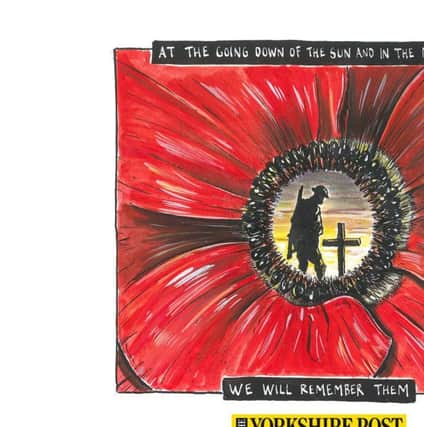The Yorkshire Post Says: A nation's respect as war sacrifices are remembered


It lasted less than four months but still claimed the lives of more than half a million troops, including 325,000 Allied soldiers which – in today’s context – equates to the entire population of Wakefield at the last census.
The name ‘Passchendaele’ has become synonymous with the horrors of the Great War along with such places as Verdun, Cambrai, Gallipoli and, of course, the Somme.
Advertisement
Hide AdAdvertisement
Hide AdOn Armistice Day, and then again tomorrow for the traditional Remembrance Sunday commemorations when the symbolism will be striking as the Prince of Wales leads the nation’s tribute at the Cenotaph for the first time, the nation honours all those killed or injured in these dreadful battles, and the many conflicts that followed.
It is a sobering statistic that more than 7,000 service personnel have been killed in the line of duty since the end of the Second World War, including more recently those who fell in Iraq and Afghanistan. Yet the survivors left behind, those men and women with life-changing physical injuries or psychological trauma, must never be forgotten – they continue to bear the scars of conflict.
That is why Remembrance Day, evoked so powerfully and with such simplicity by the red poppy, remains so important in this country. It is not about the politics of war, or its inherent rights and wrongs, it is a simple mark of respect to all those whose lives were, and in some cases still are, forever changed by war – a moment to pause for thought, as well as to remember.